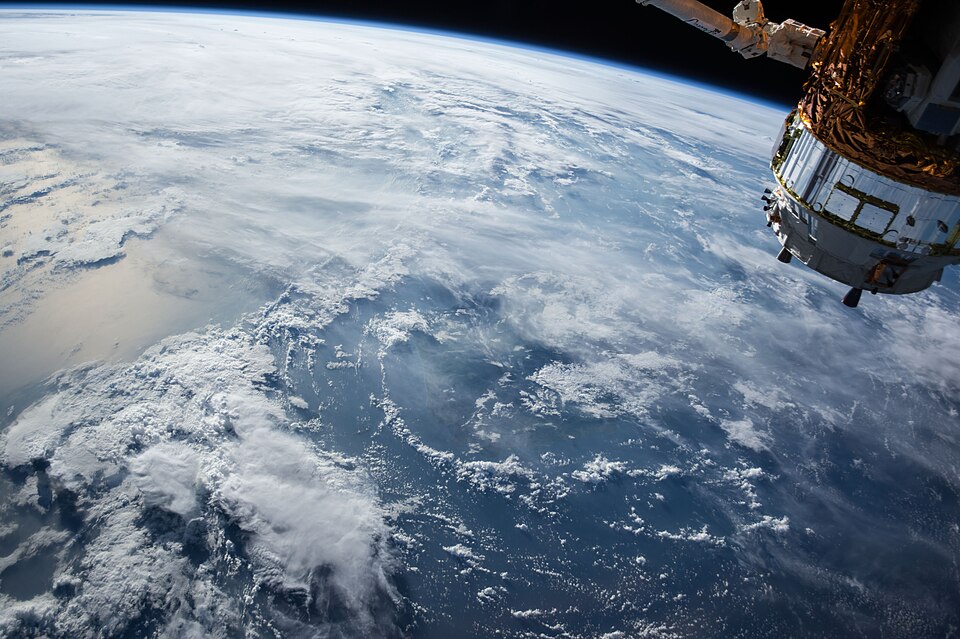
New projects unveiled today (Wednesday, 16 July) by the UK Space Agency underscore the growing importance of space technologies in the UK’s economy and national security.
From cutting-edge 5G advancements to investments in regional space clusters, the announcements coincide with new figures revealing the country’s deepening reliance on satellite systems.
Recent data, released at the opening of the UK Space Conference in Manchester, show that space and satellite services now underpin industrial activity worth £454 billion—equivalent to 18% of the UK’s GDP. This marks a £90 billion increase from the previous year, highlighting space's accelerating impact.
Investing in the future of space technology
As part of a broader strategy to strengthen national space capabilities, the UK Space Agency has allocated £4.5 million to four pioneering projects aimed at pushing the boundaries of satellite-based 5G and 6G technologies.
MDA Space UK’s SkyPhi project will deliver direct 5G and 6G satellite connectivity to devices using low Earth orbit satellites.
Orbit Fab’s Radical initiative is focused on developing in-orbit refuelling for telecom satellites.
SSTL is advancing a lunar communications system to support deep-space missions.
Viasat will deploy a hybrid GEO-LEO network offering global Direct-to-Device 5G coverage.
These initiatives are designed to boost satellite efficiency, lower infrastructure costs, and position the UK as a leader in next-generation connectivity.
An additional £1.6 million is being directed toward the UK’s space cluster network. This funding will enhance regional collaboration and innovation, helping companies leverage local expertise and stimulate broader economic growth.
With over 55,000 people employed in the UK space sector and 81,000 more in the supply chain, these investments are expected to fuel further job creation and economic development.
Government support and strategic vision
Space and Telecoms Minister Sir Chris Bryant praised the innovation on display:
“The innovations on display at the UK Space Conference demonstrate our strengths in key technologies that will shape Britain’s future, from seamless connectivity and data services to advanced manufacturing and launch.
With satellite technologies supporting more than £450 billion in annual economic activity, and crucial to climate monitoring and national security, it’s vital that we are coordinating right across Government to unlock space’s incredible potential. We’re committed to working closely with this vibrant sector to accelerate our Plan for Change”.
The conference, held in Manchester, brings together key players from the UK and international space communities to chart future growth and reinforce the sector’s strategic role in economic and security policy.
Global collaborations and groundbreaking missions
Several international partnerships were announced, including a joint project by Viasat, SSTL, and MDA Space as part of the European Space Agency’s Moonlight programme. The initiative aims to establish the first commercial communications and navigation network on and around the Moon, creating a data highway to support future lunar exploration.
Another major milestone is the upcoming launch of MicroCarb—Europe’s first satellite mission dedicated to monitoring atmospheric CO₂globally. Scheduled for liftoff on 25 July, this UK-France collaboration will help track carbon emissions and absorption, supporting climate policy and Net Zero goals. Its “city-scanning” mode can detect emissions at the urban level, providing policymakers with precise, actionable insights.
Strengthening national capabilities
According to the latest Size and Health of the UK Space Industry report, the number of space-related organisations rose to 1,907 in 2022/23, with employment growing by 7%, despite economic pressures and rising global competition—especially in satellite communications.
The report emphasizes the need for a strategic approach to public space investment, focusing on the technologies that drive both economic and security outcomes. The UK Space Agency’s activities generated £2.2 billion in investment and revenue last year, and new data show that every £1 invested in ESA programmes yields £7.49 in economic return to the UK.
In a move to strengthen UK leadership in space sustainability, the agency has also opened a £75.6 million tender for the country’s first mission to remove defunct satellites, reinforcing national capabilities in In-orbit Servicing, Assembly, and Manufacturing (ISAM).
Inspiring the next generation
Attendees at the Manchester conference have the chance to meet UK astronauts Tim Peake, Rosemary Coogan, John McFall, and Meganne Christian, who are helping to inspire young people to pursue careers in science, technology, and space exploration.
Manchester’s selection as the 2025 host city reflects its growing reputation as a hub for space innovation. The North West is home to more than 180 space-related organisations and over 2,300 professionals. Notable names such as Smart IR and MDA Space UK are expanding operations near Manchester Airport, while regional assets include the Jodrell Bank Observatory and the Square Kilometre Array global HQ.
Building on the success of past conferences in Newport and Belfast—where the latter generated £1.7 million in visitor spending—Manchester 2025 is set to showcase the UK’s rising space ambitions.
Looking forward
Dr Paul Bate, CEO of the UK Space Agency, summed up the momentum:
“The Industrial Strategy recognises we are living in the age of space, with satellite services hardwired into the UK economy and security. The UK Space Agency’s budget uplift to £682 million will help us drive forward our work to build stronger national capabilities and catalyse more private investment, in close collaboration with the sector, wider government bodies and international partners.
Together we are creating jobs, driving economic growth and tackling the key challenges. The UK Space Conference in Manchester is a powerful reminder that space is not just about looking up, it’s about moving forward”. Photo by NASA nasa, Wikimedia commons.



































